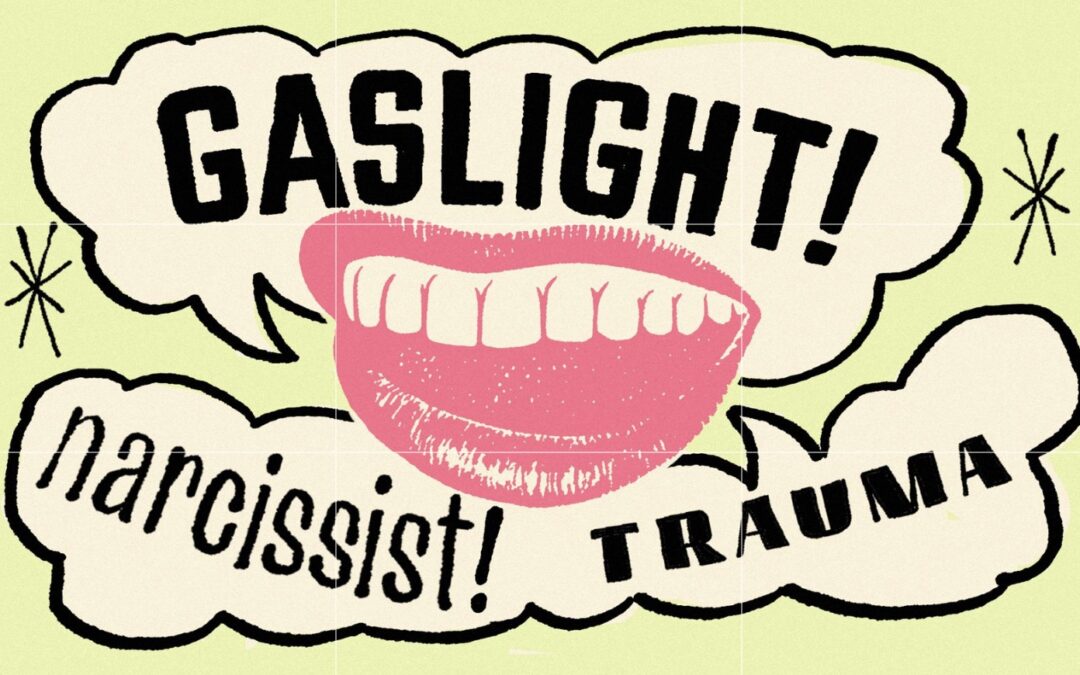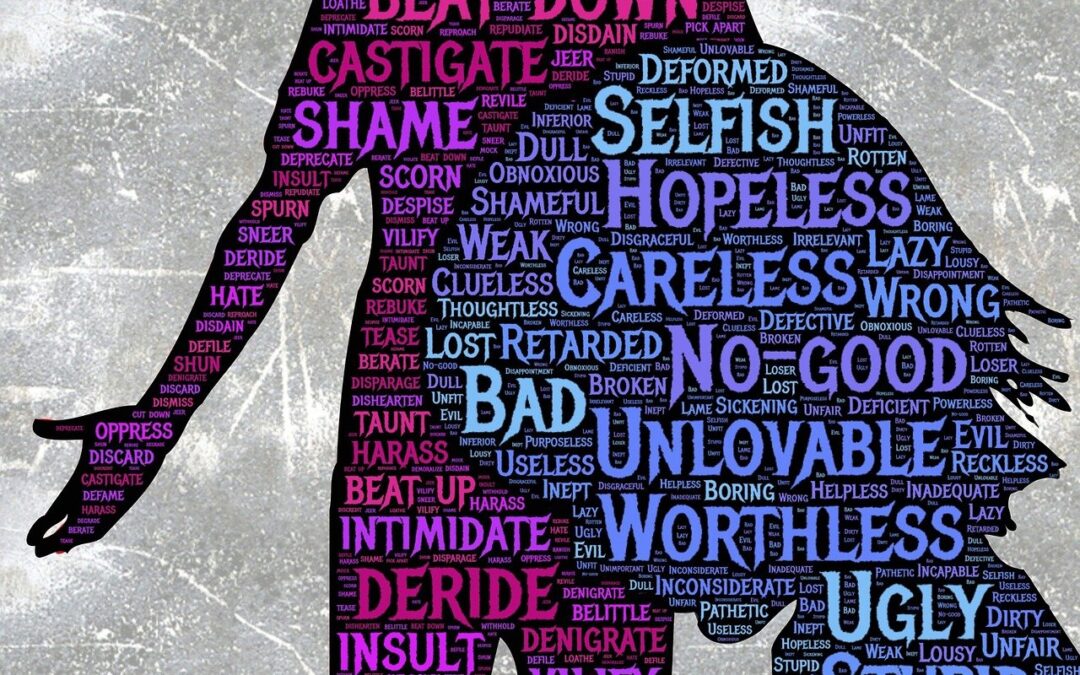In recent years, therapeutic terms like “manipulation,” “gaslighting,” and various diagnostic labels have become part of everyday conversation. While raising awareness about mental health is important, the casual misuse of these terms can dilute their meaning and, more worryingly, endanger others.
The Problem with Mislabeling
When terms like “narcissist” or “gaslighting” are used loosely, they can lose their clinical significance. For example, calling someone a narcissist because they exhibit selfish behavior ignores the complex criteria required for a diagnosis of Narcissistic Personality Disorder. Similarly, labeling disagreements or misunderstandings as “gaslighting” can trivialize the serious psychological abuse the term originally described.
This overuse can harm relationships, stigmatize individuals, and prevent people from getting the professional help they need. When diagnostic terms are thrown around carelessly, those truly suffering from mental health issues may feel invalidated or misunderstood. It can also lead to false accusations, damaging trust and communication between people.
How It Endangers Others
Misusing these terms doesn’t just dilute their meaning; it can also endanger others. For example, accusing someone of being manipulative or gaslighting without fully understanding the context can escalate conflicts and create unnecessary hostility. This can result in serious social consequences, from strained relationships to workplace discrimination.
Additionally, the use of terms based in incorrect information can lead to mismanagement of mental health concerns. It is important that the meaning behind words continue to carry their weight and effectively communicate the severity of an experience or situation. This dilution or twisting of terms can prevent someone from accessing the appropriate treatment or support they need.
A Call for Caution and Compassion
As therapists, we advocate for increased awareness and understanding of mental health. Instead of jumping to conclusions or labeling behaviors with clinical terms, let’s promote open, honest communication and encourage people to seek professional guidance when they’re struggling.
By being mindful of our language, we can help preserve the integrity of these important concepts and protect the mental health and well-being of ourselves and others.
_____________
For readers seeking more information or guidance on mental health topics, consider scheduling an appointment with one of our therapists who can provide professional insight tailored to your individual needs. You can book an appointment by calling (352) 363- 1998.
Ted Bundy. Jeffrey Dahlmer. Danny Rolling. Jim Jones. David Koresh. Charles Manson. Hannibal Lecter. Aileen Wuornos. Norman Bates. Names you probably think of — real and fiction — when you hear the word “sociopath”.
But did you know that we cross paths with sociopaths on a regular basis — and often don’t even know it?
All serial killers are sociopaths. But not all sociopaths are serial killers.
In fact, many researchers believe that 1 in 25 Americans fit the criteria for sociopathy. One in 25! Think of all the people you have met in your life. Average one in 25. That’s 4% of the population, or about 12 million Americans. Hard to believe, right?
Well, maybe not.
Sociopaths wreak havoc in people’s lives in quiet ways, too. In fact, that’s how most sociopaths work.
Have you ever known someone who left you feeling confused, devastated, or chilled – maybe all at once? Maybe it was a romantic partner you think back on and describe as evil. Maybe it was a boss whom you describe as psycho. Or that domineering neighbor.
The vast majority of sociopaths don’t kill. But they make people miserable. And they tend to get away with an awful lot.
Wouldn’t it be nice to recognize a sociopath before they do their damage?
And, once recognized, wouldn’t it be great to know how to deal with one?
Sociopathy is surprisingly difficult to see.
In her book The Sociopath Next Door, clinical psychologist and former Harvard faculty member Martha Stout, PhD, gives us a great roadmap for conceptualizing, understanding, and avoiding sociopaths.
First, shift your Hollywood version of the sociopath or psychopath (the terms are interchangeable) – a cold-blooded serial killer – to the actual definition of a sociopath.
Sociopathic characteristics include powerful charisma, charm, spontaneity, chronic manipulation, intensity, and risk taking.
Sociopaths are good at making you doubt yourself. Making you do things you wouldn’t normally do. Making you do things for them. Making you feel crazy.
Sociopaths like to win, they like to dominate.
But the defining characteristic of a sociopath is a person who has no conscience.
What does this mean? No empathy. An inability – not a choice, but an inability – to care or even think about the feelings of anyone else. An ability to move through life with complete disregard for their actions: no remorse, no capacity for shame, and no guilt.
Sociopaths can, because they are unhindered by guilt, manipulate their way to the top. It could be Wall Street. It could be the local school board. It could be the homeowner’s association. It could be government. It could be their relationship with you. It could be any role. Which top depends on the sociopath’s particular ambition, desire, talent and smarts.
And one of the most difficult things about dealing with a sociopath is when you see it….but others around you don’t.
Many sociopaths live their lives relatively undetected – except, perhaps, by those closest to them… and only then, sometimes, to those who have learned to identify a sociopath.
Sociopaths use many tools. They are described as charming, with an almost animal-like charisma. They have magnetism, an affinity for danger, spontaneity. They inspire a feeling of familiarity: “I just felt like I’d known her forever!” They establish intimacy quickly. They use “we” statements. They use seduction. They create distractions with social/professional roles: animal lover, humanitarian, benefactor. They engage in gaslighting – making you doubt your perceptions of reality.
Sociopaths are expert in identifying an easy mark – they can pick out the most trusting, decent person in the room. They use their victim’s goodness and capacity to trust against them. Crocodile tears are a favorite method. They are masterful at evoking pity and have incredible acting skills. In fact, sociopaths have an especially strong fondness for evoking pity.
Pity is carte blanche. Good people will let pathetic individuals get away with, sometimes literally, murder.
And when we pity, we are emotionally defenseless, emotionally vulnerable.
All sociopaths are violent – some emotionally, and some physically as well. For help in protecting yourself from violence in general – including sociopathic violence, I strongly recommend Gavin de Becker’s book, The Gift of Fear. This book discusses the predictability of violence – great for avoiding sociopaths. In particular, I like his Pre-Incident Indicators (PINs), which reads like a menu of sociopathic characteristics:
- Forced teaming. This is when a person implies he has something in common with you, claiming you have a shared predicament when that’s not really true.
- Speaking in “we” terms, i.e. “We don’t need to talk outside…Let’s go in.”
- Charm and Niceness. This is being polite and friendly to a chosen victim in order to manipulate him or her, or to disarm their mistrust.
- Too many details. If a person is lying they will add excessive details to make themselves sound more credible to their chosen victim.
- Typecasting. An insult is used to get a chosen victim who would otherwise ignore one to engage in conversation to counteract the insult. For example: “Oh, I bet you’re too stuck up to talk to a guy like me.” The tendency is for the chosen victim to want to prove the insult untrue.
- Loan Sharking. Giving unsolicited help to the chosen victim and anticipating they’ll feel obliged to extend some reciprocal openness in return.
- The Unsolicited Promise. A promise to do (or not do) something when no such promise is asked for; this usually means that such a promise will be broken. For example: an unsolicited, “I promise I’ll leave you alone after this,” usually means the chosen victim will not be left alone. Similarly, an unsolicited “I promise I won’t hurt you” usually means the person intends to hurt their chosen victim.
- Discounting the Word “No”. Refusing to accept rejection. “No thanks, I don’t need help,” the victim says. “Nonsense—it’s no trouble, we’re almost here!” says the sociopath.
So now you have a lead on how to recognize a sociopath, and hopefully red flags will rise when you encounter one.
But what if you’ve now realized you have a sociopath in your life – right now – and want to know how to handle them?
Stout lists “Thirteen Rules For Dealing With Sociopaths In Everyday Life.” I love this list and found it enlightening. Following is a paraphrase of what is written in her book.
1) Accept that some people have no conscience. And they don’t look like a serial killer. They look like us.
2) Always listen to your gut and prioritize what it tells you. “In a contest between your instincts and what is implied by the role a person has taken on – educator, doctor, leader, animal lover, policeman, humanist, parent – go with your instincts,” Stout urges.
3) Practice the “Rule of Threes”. Three strikes = out. One lie, one promise broken, one neglected responsibility – it could be a misunderstanding. Two: could be a serious mistake. Three: you are now dealing with a liar, and deceit lies at the heart of a person with no conscience. Cut your losses immediately.
4) Question authority. Heed your own anxieties and instincts. Especially around those who claim that by dominating others they are helping a greater good.
5) Suspect flattery. Know the difference between compliments and flattery. Compliments usually feel good. Flattery feels like too much. Know that sociopaths use flattery to manipulate.
6) Re-define your definition of respect. Discern between fear and respect. Sometimes the more we fear someone, the more we defer to them and offer them respect. Just because someone causes you to fear does not mean they are worthy of your respect. Separate the two.
7) Do not participate in intrigue – don’t play the game you’re being invited to play. Don’t compete with, or try to outsmart, or psychoanalyze, or even banter with a sociopath. Your #1 goal is to protect yourself.
8) Avoid. The best way to protect yourself is to avoid all contact. Minimize or eliminate the sociopath from your life. Although sociopaths are great actors, and can feign hurt feelings, know that they have no feelings to hurt – they are manipulating you.
9) Question your tendency to pity too easily. Evoking pity is a classic sociopathic tool. If you find yourself pitying someone who consistently hurts you or other people, chances are close to 100% that you are dealing with a sociopath. Related to this: challenge your need to be polite in all situations. Sociopaths take full advantage of our social reflexes. Remember: “No.” is a complete sentence.
10) Do not try to redeem the unredeemable. Second (and third and fourth) chances are for those who have a conscience. You can’t control someone else’s behavior. Although another favorite sociopathic trick is to defer blame and make other’s take responsibility for their behavior, “You owe me,” is another favorite phrase of the sociopath, know that you are not at fault. Again, learn how to cut your losses quickly.
11) No cover-ups. Never agree, for any reason, to help conceal the true character of a sociopath. “’Please don’t tell,’ is the trademark plea of thieves, child abusers – and sociopaths,” writes Stout. Do not listen to this self-serving request. Others deserve to be warned more than the sociopath deserves to be protected.
12) Defend your psyche. Don’t let someone without a conscience try to convince you that people aren’t good. Know that most of us do, thankfully, posses a conscience, and can love.
13) Live well. It is the best revenge.
Disturbing, isn’t it, to think about one in 25 of us having no conscience. One in 25 people being someone we need to avoid. Disturbing to think about the ease with which a sociopath creates a swath of destruction…and that they get away with it….and all you can do, usually, is steer clear.
But here’s another item I’d add to the list, something I’ve been known to say in my sessions with clients: 14) Time Wounds All Heels. (That’s not a typo. Eventually, karma catches up with bad folks). Sociopaths come to a bad end. For a thorough discussion on this, read Stout’s book. In a nutshell, because of the unrelenting boredom they feel, sociopaths create drama, take massive risks – even, sometimes, kill. It makes sense if you think about it – without human connection, what else is there? Because of their risk taking, it’s common for sociopaths to eventually be murdered, die of an overdose, or in an accident.
I write this not in the spirit of schadenfreude, but rather in celebration of our ability, the majority of us, to live lives full of depth, meaning, relationship, and love.
I’m curious to hear: what sociopaths have you encountered in your lives?
*click on title to open comments below












